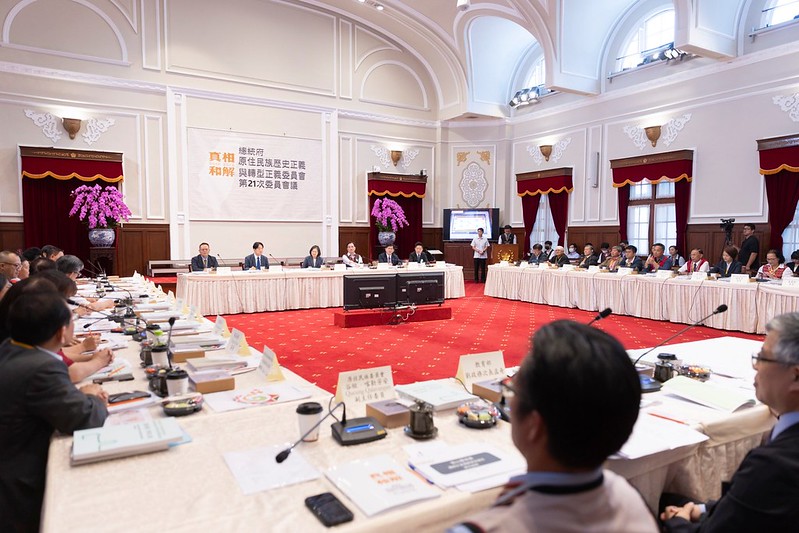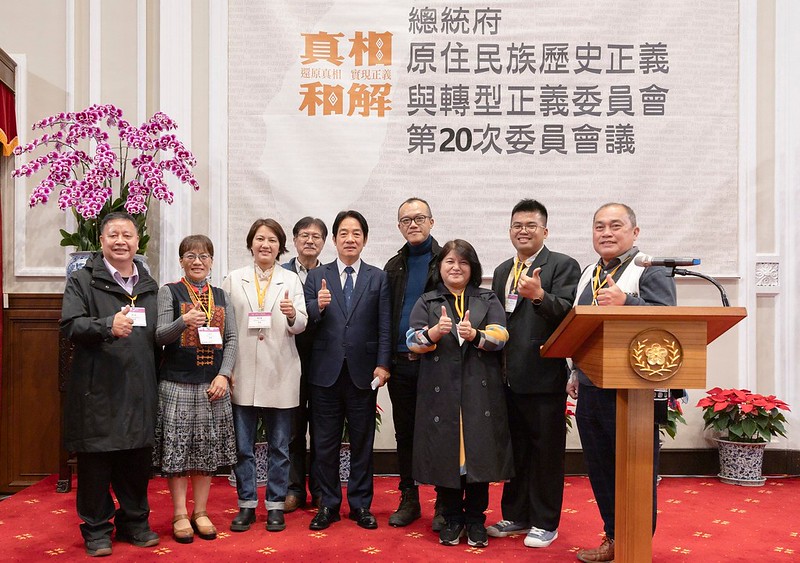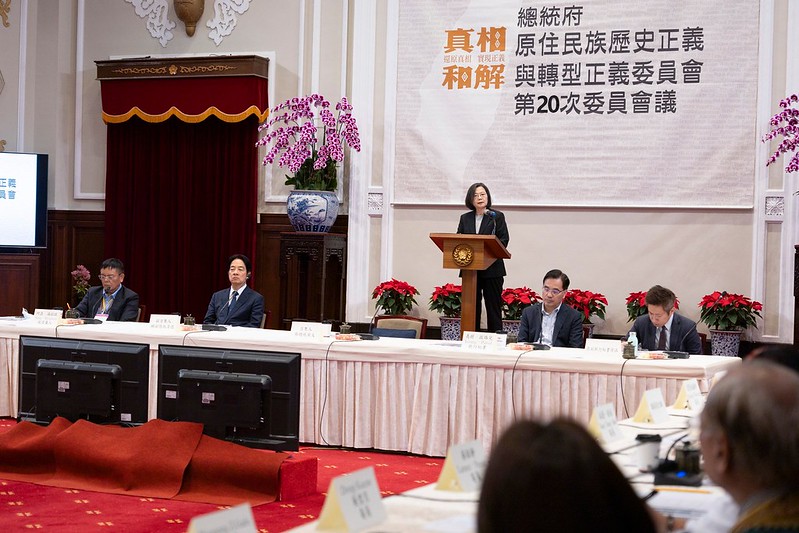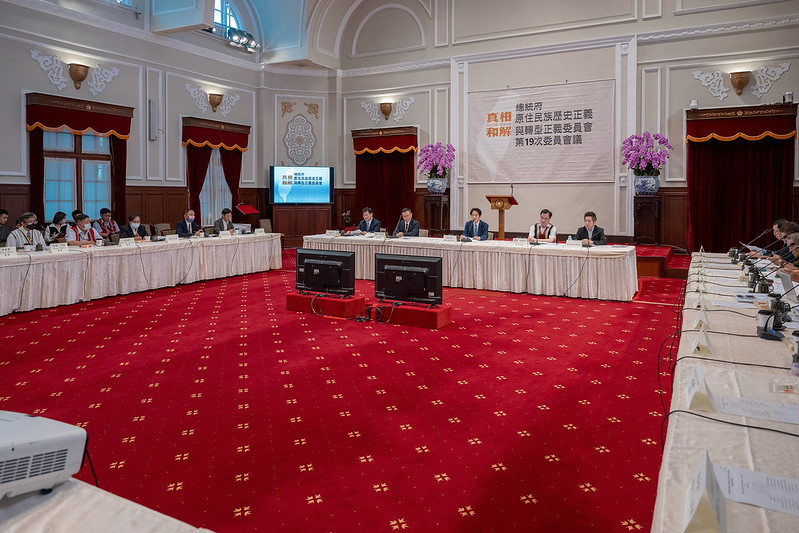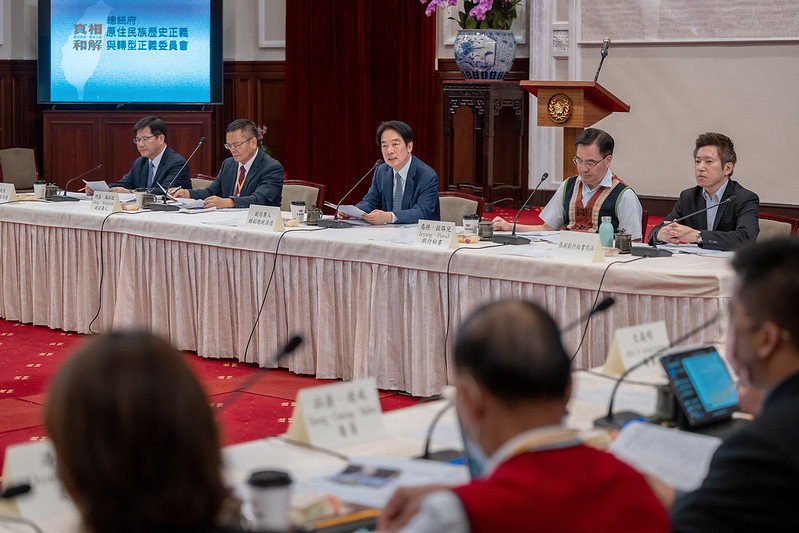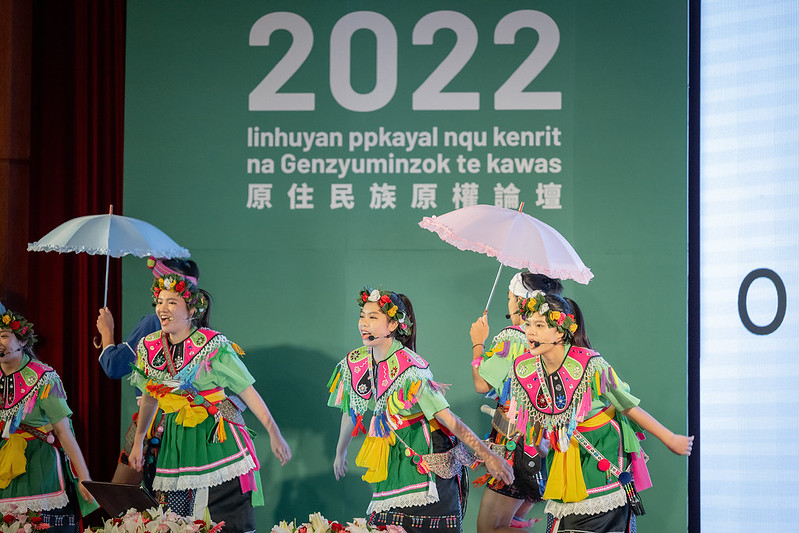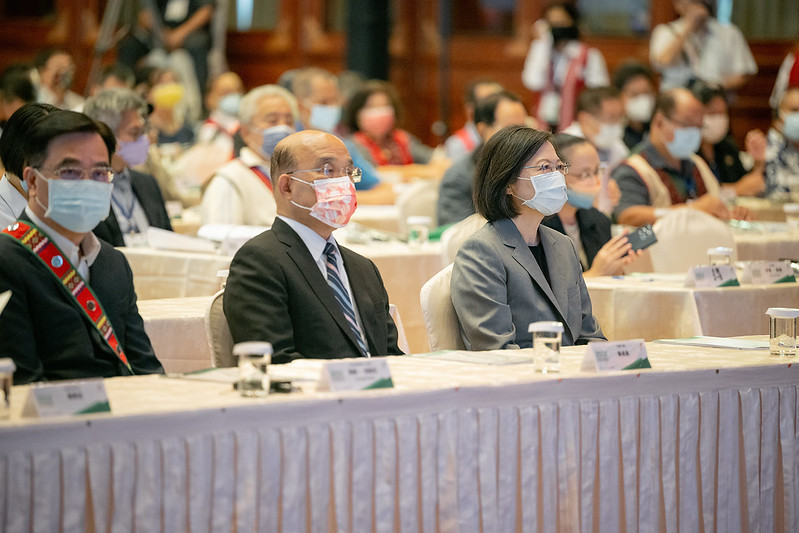News & activities
 News releases
News releases
On the morning of August 1, President Tsai Ing-wen attended the opening of the 2022 edition of an indigenous rights forum. Speaking at the forum, President Tsai explained the functions of policies focused on indigenous communities, which have been promoted by the executive and legislative branches of government. The president expressed her expectation that the National Human Rights Commission will maintain its independence, align itself with international human rights standards, and continue providing assessments and reports that help facilitate a greater understanding of indigenous rights within Taiwanese society. The president also expressed hope that as Indigenous Peoples' Day, August 1 will be for all the people of Taiwan, encouraging everyone to join with the Council of Indigenous Peoples and the National Human Rights Commission in paying homage to and learning from indigenous peoples.
Noting that August 1 is Indigenous Peoples' Day, a day on which all government agencies review their policies on indigenous affairs, President Tsai said that on this day six years ago, the Office of the President began working toward indigenous historical and transitional justice, and that on this day two years ago, the Control Yuan National Human Rights Commission commenced operations.
The president said that on this year's Indigenous Peoples' Day, she was happy to see the National Human Rights Commission and the Council of Indigenous Peoples jointly holding this indigenous rights forum, and commended the two government agencies for their exemplary collaboration in implementing ethnic mainstreaming.
The president said that internationally indigenous rights are indeed a very important aspect of human rights. She noted that the UN International Covenant on Civil and Political Rights, International Covenant on Economic, Social and Cultural Rights, and Declaration on the Rights of Indigenous Peoples, as well as the Indigenous Peoples Basic Law in Taiwan, all state that the rights arising from indigenous people's lands, languages, cultures, and unique identities must be sufficiently respected and protected.
The president pointed out that the government is also working to advance its indigenous affairs policies in order to keep up to date with international developments in the protection of indigenous rights. President Tsai noted the government's efforts over the past few years to recognize the importance of indigenous language rights and support the development and passing down of indigenous languages. Thanks to these efforts, the president said, the government is gradually instituting simultaneous interpretation of indigenous languages in its meetings.
President Tsai added that the government takes indigenous cultural rights very seriously, and supports the promotion and expanded exposure of indigenous cultures. She said that the indigenous radio station Alian 96.3 has been established, and that she has noticed many indigenous youth active on YouTube, Instagram, and podcasts platforms.
As land rights are a matter of great concern for indigenous communities, the president stated that the government continues to clarify historical facts related to land matters and is helping indigenous peoples to obtain their rights to reserved land, with a draft version of an act governing the management of lands reserved for indigenous people currently being deliberated in the Legislative Yuan.
The president mentioned that in addition to the efforts of the executive and legislative branches, she hopes the National Human Rights Commission maintains its independence, aligns itself with international human rights standards, and continues providing assessments and reports that facilitate greater understanding of indigenous rights within Taiwanese society.
The president expressed hope that, with all these efforts, as Indigenous Peoples' Day, August 1 will not just be for indigenous peoples, but for all the people of Taiwan. President Tsai then called on all those present to join with the Council of Indigenous Peoples and the National Human Rights Commission in paying homage to and learning from the indigenous community, before concluding with "Sa'icelen," a word of encouragement in the indigenous Amis language.
Among those present at the forum were Palauan Ambassador Dilmei Louisa Olkeriil, Marshall Islands Ambassador Neijon Rema Edwards, Nauruan Ambassador Jarden Kephas, Tuvaluan Ambassador Bikenibeu Paeniu, Australian Representative Jenny Bloomfield, New Zealand Commerce and Industry Office Director Mark Pearson, and Papua New Guinea Trade Office in Taiwan Representative Tommy Kunji.
